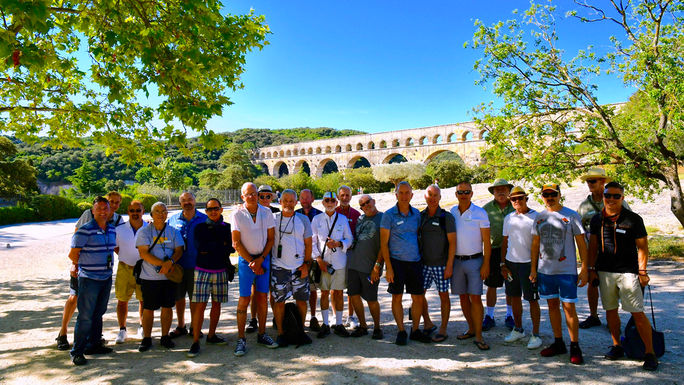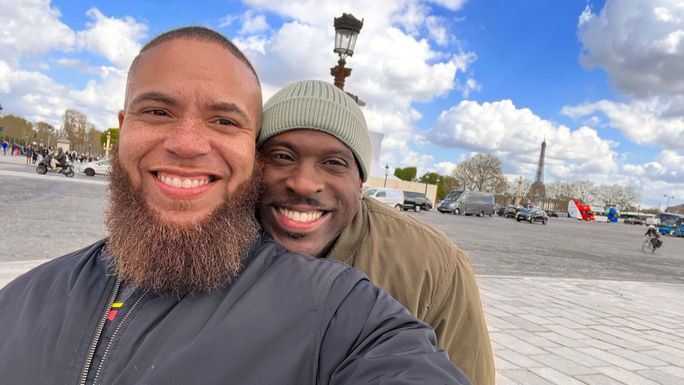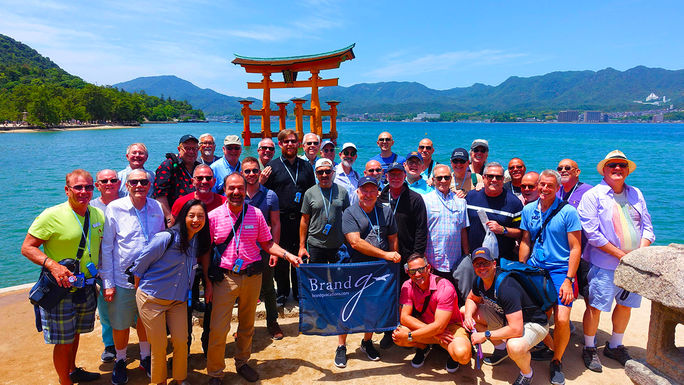
by Paul Heney
Last updated: 8:00 AM ET, Sun August 13, 2023

When choosing a destination, safety is the top concern for 62 percent of LGBTQ+ travelers. (Photo Credit: Drazen_/E+)
WayAway has published the results of a study showing LGBTQ people still don’t feel safe when traveling—and often feel they cannot be themselves. The results follow a survey of 100 statistically relevant frequent travelers who identify as LGBTQ, comparing the results with heterosexual frequent travelers.
The average "safe indicator" for LGBTQ+ travelers, at 3.5 out of 5, is far below the heterosexual average of 4.1 points. Additionally, 50 percent said they avoid public displays of affection, while 30 percent claimed they limit the way they dress or behave in public. Another 30 percent said they control revealing personal information. In fact, when choosing a destination, safety is the top concern for 62 percent of LGBTQ+ travelers.
“Whilst undoubtedly enormous progress has been made over the years, as LGTBQ+ people travel to Gay Pride events all around the world let’s not forget that many of them sadly don’t feel safe or that they can be themselves when traveling,” said WayAway’s Director of PR, Janis Dzenis.
Paying Attention to Safety
Jeff Gundvaldson, CEO of Brand g Vacations, a luxury tour provider, said that safety is one of the most important factors they use in choosing not only the destinations but who the company works with in those destinations.
“We would never take our guests to destinations where they would be in imminent danger just for being LGBTQ. That doesn’t mean that we only take guests to places that are 100 percent gay-friendly. We do take our guests to countries with anti-gay laws on the books as long as we are 100 percent confident those laws are not exercised against foreign travelers. In planning all our trips throughout the world, we choose to work with local operators with good reputations, who support our community and who we are confident can provide our guests with a safe and enjoyable experience.”

Minneapolis-based Brand g Vacations focuses on luxury cruises and land tours for LGBTQ travelers. (Photo Credit: Brand g Vacations)
For frequent traveler Micah Tucker, who works in K-12 Outreach for a university in Atlanta, he prefers to travel to places known to be safe to tourists with similar identities to himself. He said safety assurance is extremely important.
“I often dress differently than what I would prefer, due to unknown cultural biases to my expression. Out of the country, where I’m a minority in multiple ways, I’m more conservative with my attire,” Tucker said.
While Tucker doesn’t recall feeling unsafe while traveling internationally, he did say that any time he’s dressed more feminine here in the U.S., he’s felt unsafe.
“The places range from smaller cities in the South to bigger cities up North or out West. Most of the time, I feel unsafe walking at night and walking past other men. Some men have made comments, but I just ignore them and put as much distance between us as possible,” he said.
“Safety is very important,” said Brian McNair-Faulk, a math teacher from Chicago, who travels at least once per month. “There are some countries my husband and I refuse to visit because we don’t want to be harassed if they realize we are together.”
McNair-Faulk said that over the past few years, he’s become less tolerant of areas that don’t support himself and his husband—and they try not to travel to those places.

McNair-Faulk (left) and his husband in Paris. (Photo Credit: Brian McNair-Faulk)
The Dangers of Traveling in Drag
Drag has become a political flash point in some states, making things more difficult for drag performers who travel. Pissi Myles is an NYC Drag Queen who travels between five and 10 times per year, often internationally.
“Often, my travels are to or through places that I don’t get to choose—traveling for work can be hard when I know I’m traveling in a place that is not queer-friendly. Last year, I traveled through the UAE (Dubai) and was warned repeatedly by friends and family not to be ‘too gay’ because of the laws there,” said Myles.
“I often wonder what it must be like to be able to travel with your spouse and not worry about sharing a room or a bed, or about holding hands in public or stealing a kiss on an evening stroll. It’s heartbreaking to know that I’ve had to be careful which items were put in carry-on vs. checked luggage, for fear that they would somehow put me in a dangerous situation with TSA or other security organizations.”
Myles said her attitude about safety in general has changed in the last seven years.
“Since Trump ignited a fire in the extremists of the world he has incited people to violence and has emboldened them to think that they are right in persecuting and oppressing people, it is not safe to assume that you won’t be in a dangerous situation. I am often aware of exits nearby, the nearest security, etc. The public has been changed by the conversation around queer people; they’ve been tricked by power-hungry people who get their money out of ratings or campaign donations into thinking that we are somehow responsible for hurting them and their children, which couldn’t be further from the truth. The church and gun manufacturers have far more documented cases of violence toward children, but no one seems to ever want to address them or their culpability. It’s easier to point to a boogeyman than to the person you thought you could trust.”
The Best Advice?
"Research an area before you go there,” said McNair-Faulk. “Talk to local gays and figure out the atmosphere. If you’re going someplace where it may not be safe go with a group, make sure your ride situation is set (sometimes Ubers don’t pick up in certain neighborhoods) and limit the use of alcohol and other substances so that you can be more aware and alert.”

Brand g Vacations works with local operators with good reputations to ensure safety for LGBTQ travelers. (Photo Credit: Brand g Vacations)
Gundvaldson agreed that it is important to know your destination before you travel.
“There are so many good resources on the web, including the U.S. State Department, which publishes information about LGBTQ rights and safety concerns. If you have any doubts about the safety of traveling to a particular place, look for an LGBTQ-focused group tour to that destination. Not only will you make a lot of new friends, but you’ll feel much safer in the hands of an experienced tour operator that has done the work on your behalf to keep you safe,” he said.
“My advice is to do your research,” said Tucker. “Always look up travel reviews from people with similar identities.”
And Myles stressed being both informed and alert.
“Know about the place you’re traveling to and get that information from reliable sources. Learn about the culture you’re going to experience there,” she said. “Travel with courage and with awareness—awareness of the people around you, of the places you’re in, and try to stay a step ahead of the situation. Don’t take risks if you feel unsafe. Even if you’re making them up, you have instincts and you should trust them. It could be what keeps you out of harm’s way.”
For the latest travel news, updates and deals, subscribe to the daily TravelPulse newsletter.
Topics From This Article to Explore